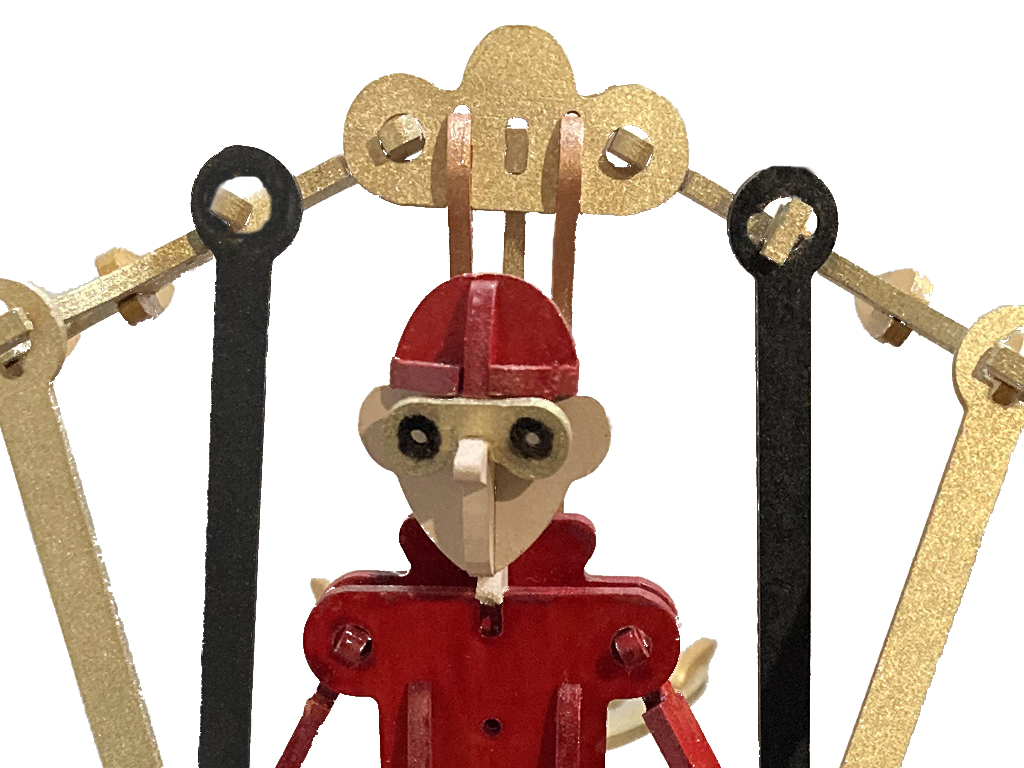HASS512: Automata: Ancient, Medieval, Modern

12 Credit Point Unit
Available T1, T2, T3
What Are Automata?
Automata are self-moving devices. They are often constructs of great artistic creativity and mechanical virtuosity. Some are of great antiquity while others are surprisingly modern. Whether ancient, medieval, or modern, the line between the magical and the mechanical has not always been easy to discern. Some ancient automata were purely thought experiments – flights of fancy or “what if” scenarios created to imagine the invention, use, and consequences of technologies not yet available. Others really existed and served to entertain or spur on further scientific endeavour.
Automata Alley: Ancient, Medieval, Modern is an exhibition of the Museum of Antiquities (UNEMA) that explores automata through the ages. In addition to surveying highlights in the history of automata, Automata Alley explores their existential meaning. The ability to move of one’s own volition and the power to be self-determining raises questions about the nature of free will, responsibility, morality, and what it means to be human. In essence, automata are artefacts of timeless ethical dilemma as well as entertainment that challenge us to reflect on the human condition. The Automata Alley exhibition supports UNEMA’s STEAM Education and Assistive Technology program. Known as “A Helping Hand” this program is designed to provide students and the general community with opportunities for training in STEAM education, especially in the skills of 3D-scanning, printing, and design required to produce assistive technologies that support limb-different individuals living in regional Australia. You can learn more about “A Helping Hand” from the UNEMA Projects webpage. HASS512 Automata Projects foster theoretical and/or applied research on any aspect of the history, use, and meaning of automata; the opportunity to curate an exhibit to be included in UNEMA’s Automata Alley; and/or to contribute to the development of UNEMA’s schools and community “Helping Hand” STEAM education program.
If you are interested in applying to do a HASS512 Automata Research Project, please read the information below and follow the HASS unit Application Process
Getting Started
- Read the information provided under “Further Information”
- Explore the Automata Alley Resources Link for ideas and reading assistance.
- Choose a research aspect of interest and write a draft project proposal.
- Follow the instructions provided under “How To Apply”
These automata research projects are highly flexible to facilitate variety in project design. Your project may be designed to pursue a very traditional approach to research into the history, function, or philosophy of automata and their relation to the fields of prosthetics, timekeeping mechanisms, mechanical and electromechanical toys, and the development of stop-animation and 3D printing, or it may be designed to incorporate elements of design, build, and curation. The following research angles are just some options you might consider: For more information about the exhibition Automata Alley: ancient, medieval, modern or about the Helping Hand program contact Dr Bronwyn Hopwood (bhopwood@une.edu.au). The A.G. & I.C. McCready UNEMA Research Bursary for Classical Antiquity was established in 2022 to support Honours and MA/MHIST Coursework Research Dissertation Projects on the Material Culture of Classical Antiquity. The value of the bursary is currently $1,000 AUD. Students enrolling in either Honours or an eligible MA/MHIST Coursework Research Dissertation in a relevant field at UNE are eligible to apply for this bursary when undertaking research on an aspect of the material culture of Classical Antiquity. Eligible MA/MHIST Coursework Research Dissertations are single unit research projects of 12 cpts or more (ie. HDR pathway units). Eligible units include, but not limited to, HASS512 and HASS518. Honours research in relevant fields of study at UNE are eligible. Relevant fields include, but are not limited to: Classics, Ancient History, History, Archaeology, Heritage, and Reception Studies. Reception Studies generally refers to the study of the influence of classical antiquity on other fields. It is most commonly studied within English Literature, Art History, Architecture, Museums and Cultural Heritage, and Theatre Studies. The Material Culture of Classical Antiquity is defined for the purposes of this bursary by the Classical Antiquities Collections of the UNE Museum of Antiquities (UNEMA). Those collections are: The Ancient Near East, Cyprus, Egypt, Greece (from the Bronze Age to the Hellenistic Mediterranean), the Pre-Roman Italic Peninsula, and Rome (from the founding of the city to the Byzantine era). For more information about this bursary see UNEMA’s Scholarships & Prizes Use these forms to apply to enrol in a HASS512 Automata Project with Dr Bronwyn Hopwood in the UNE Museum of Antiquities (UNEMA). Please fill in, sign, and return these three forms to Dr Bronwyn Hopwood:
Once your draft proposal has been approved by your supervisor you can submit it with your online application to enrol in HASS512 through the School’s online project application portal:

